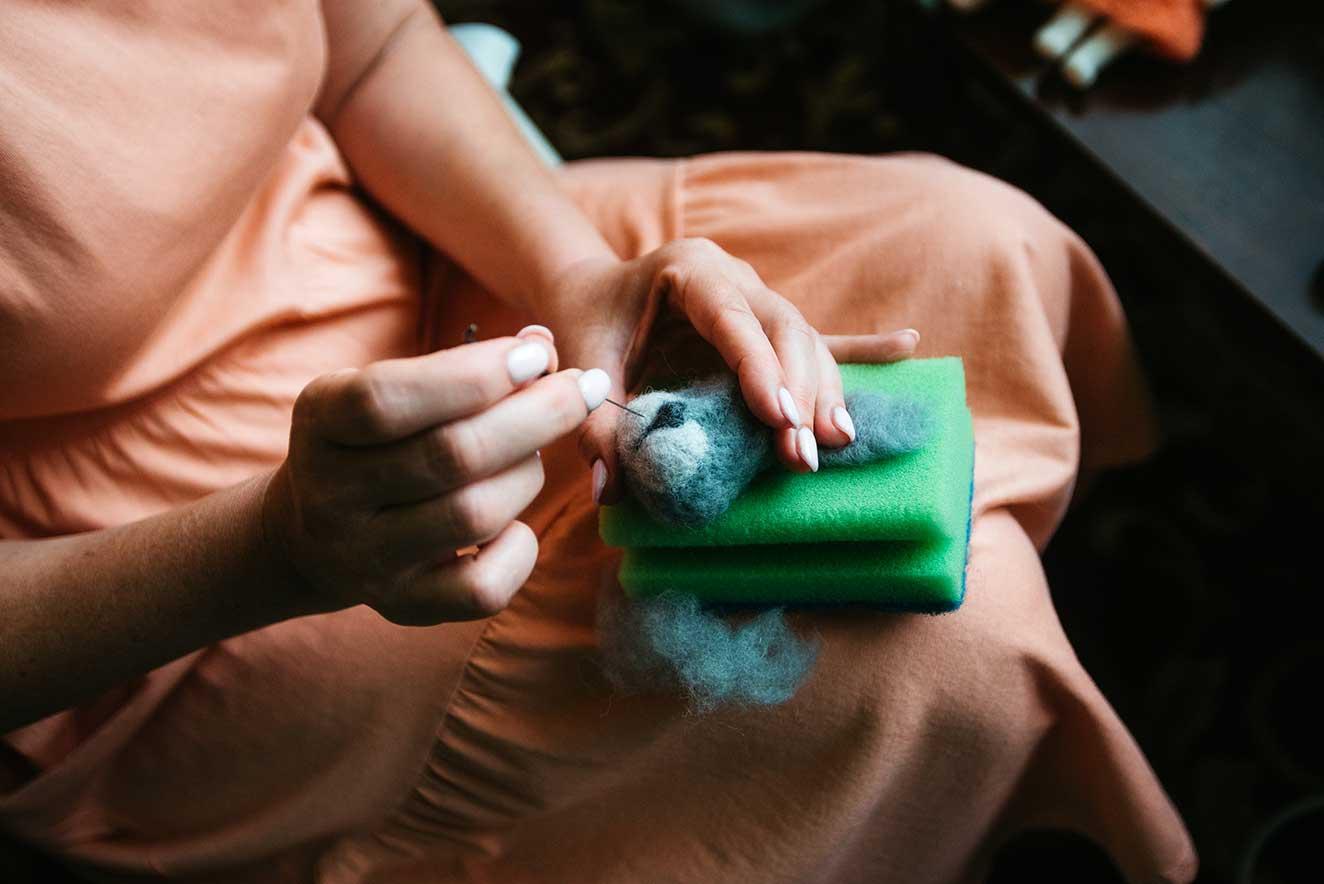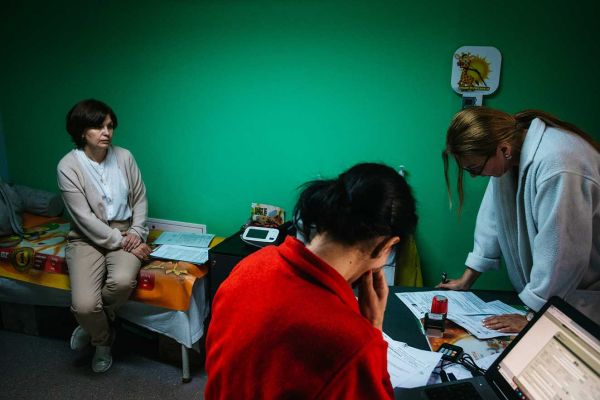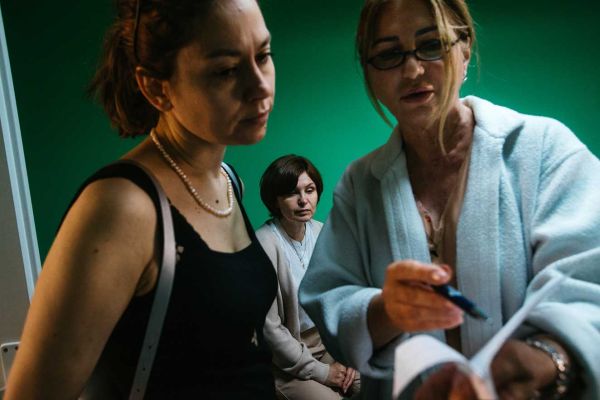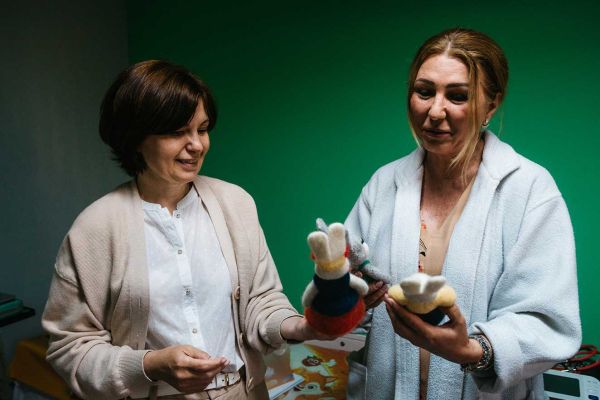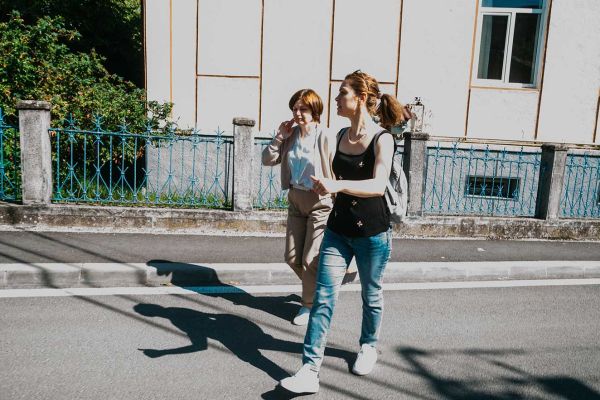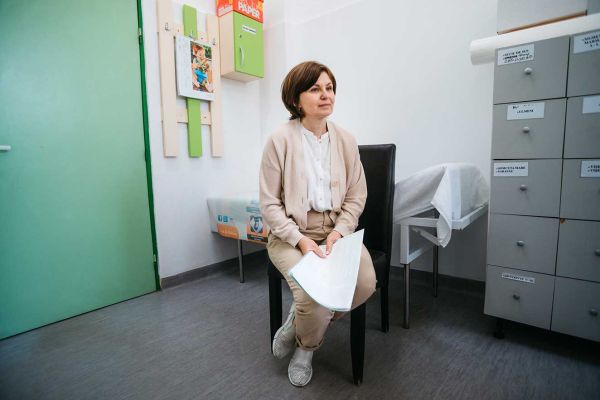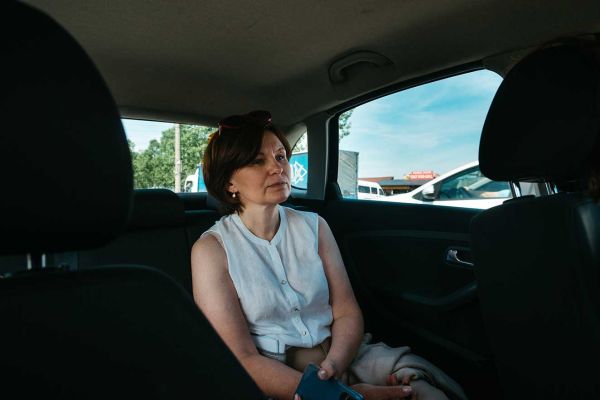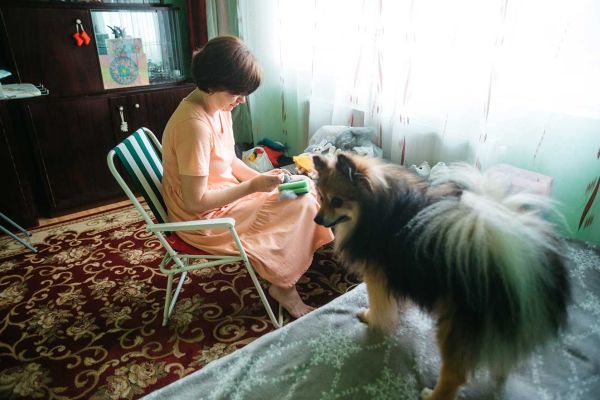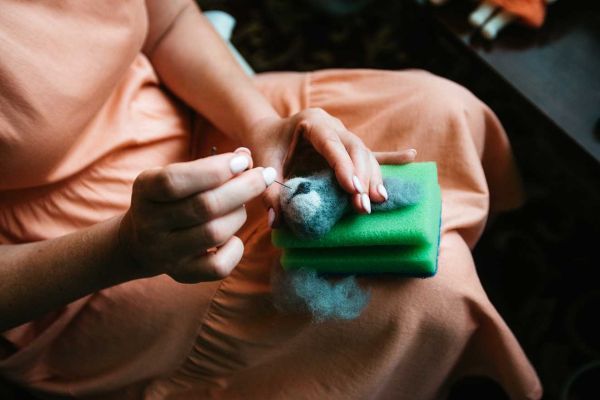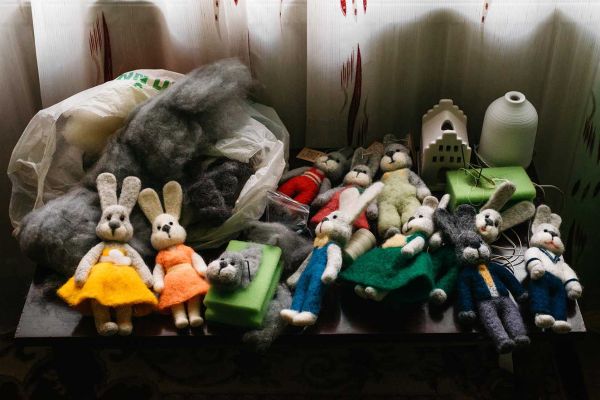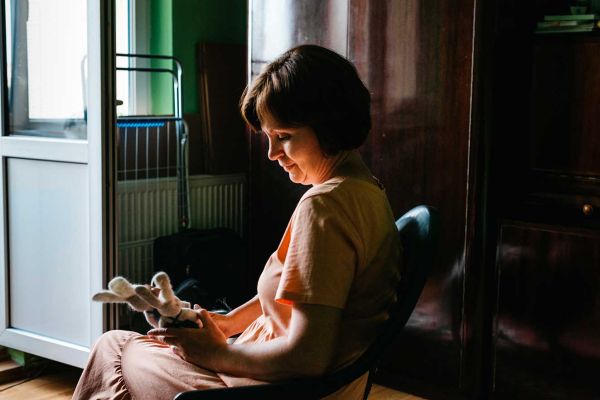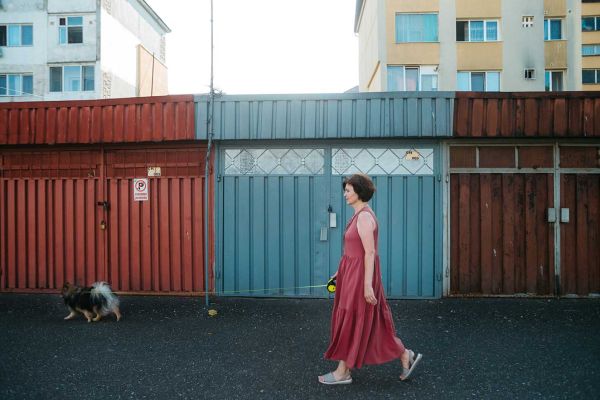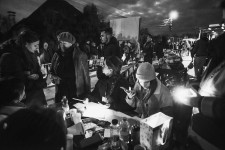The Cossack rabbit was Dr. Rodica Cadar's choice when, at the end of the consultation in her clinic in Șomcuta Mare, Maramureș, the patient took out of her purse some woollen dolls she made herself. The patient was Liudmyla Pluzhnikova, a 50-year-old Ukrainian born in Harkiv, Ukraine's second largest city and the administrative seat of the region bearing the same name, in the north-east of the country.
Mrs. Pluzhnikova arrived in Romania in March 2022, fleeing the Russian invasion. On 24 February 2022, she woke up at five in the morning to the sound of sirens and what sounded like fireworks. An hour and a half later, when she took her dog out for a walk, she saw the streets full of cars and people leaving the city. Many were carrying only the "little bag", a bag of bare necessities that people were told to keep handy. She was impressed, but her thoughts were elsewhere: four months earlier she had surgery for colon cancer and that morning she had an appointment with her oncologist. She managed to get to the doctor and buy her medication. She spent three hours in line at the pharmacy. People had stormed stores and pharmacies trying to stock up.
When she got back home in the afternoon, she learned that public transportation was down. All traffic was closed. In the afternoon, the bombing began to get louder and louder, and she and her 25-year-old daughter, dog and cat took shelter in the basement of a kindergarten next to their apartment building. There they met up with her mother who lived nearby and they spent ten days in the shelter together. About 100 people were there, including young children. Many accompanied by their pets. At first they sat on chairs, then they used the kindergarten cots. In the morning they only had two hours, between 6:00 and 8:00, when the bombardments stopped and they could walk home, change, feed themselves and bathe.
At some point, they found out that the Russians reached a nearby school and began to wonder if it would be better to leave the city, especially since Mrs. Pluzhnikova was supposed to have her chemotherapy session. As there was no public transportation and taxi drivers refused to travel to that vicinity because it was too dangerous, with help from a friend they found someone willing to drive them to the train station. They were charged 200 euros. She left with her daughter and her dog. Too weak to carry the cat, she left it with her mother who didn't want to leave town.
Two days later, after riding overcrowded trains, they arrived in Ukhgorod, a city in western Ukraine, close to the Polish border, where they had some friends. They ended up staying with them for three days, resting and getting some relief. They decided to head for Poland or Romania because they heard they were being warmly welcomed and Mrs. Pluzhnikova could continue their treatment. Since there were long lines at the Polish border, someone recommended that they go to Romania. And so they arrived in Sighetu Marmației on 10 March.
Mrs. Pluzhnikova was tired, dehydrated and told the volunteers at customs about her illness and that she needed chemotherapy. They called an ambulance to take her to the hospital in Sighet, where she had chemotherapy and was admitted for five days, during which time her daughter was housed in a Baptist church.
Two volunteers from a Baptist association assisted her in finding an apartment in Baia Mare where they moved after she was released from the hospital in Sighet. Same volunteers accompanied her to the County Hospital in Baia Mare, where the doctors in Sighet referred her to. But the tests there, while she was preparing for a new chemotherapy session, came back so badly that she had to undergo surgery. The operation was successful and on discharge the doctors encouraged her: "You can go with God, you are very well". It was 24 June.
That summer Mrs. Pluzhnikova managed to relax, eat well and gain some weight. She started taking longer walks and got to know the city better. She especially enjoyed the Municipal Park from where she could see the mountains that gave her positive energy and a feeling of protection. Her daughter was always by her side. She has a degree in architecture and the two volunteers helped her get a job as an architect at a local company.
While she was hospitalized, she learned from a fellow ward sister, also from Ukraine, that there were several organizations helping refugees. After her discharge, she started attending events organised by these NGOs, socialising and meeting people. At ROUA, a community centre founded by a coalition of NGOs, she took Romanian and English classes, and in mid-July she joined an ASSOC project for Ukrainian refugees living in Maramures. She was eager to find a job. She is a dressmaker and in Harkiv she worked in a factory making wedding dresses. ASSOC found a tailor's shop where Mrs. Pluzhnikova worked for three days. But she realised she was too weak to cope with an eight-hour day.
The tests in April this year, in Baia Mare, came back okay, but the abdominal pain returned. In May, Mrs. Pluzhnikova returned to Harkiv to see the doctor who discovered her illness. She went through more tests and found that "they are not perfect, the disease is still there, and one of the markers is very high".
Still, it was a quiet week while he was home. The week before, a missile landed downtown and one at the airport. She returned to Baia Mare because she decided to stay there, find a job and support her daughter who was very involved in her work there.
At ASSOC, Mrs. Pluzhnikova met Anastasia Papp, a social worker and call-center operator with the association. Anastasia is the one who accompanied her to the family doctor in Șomcuta Mare. ASSOC thought that qualifying as disabled would help Mrs. Pluzhnikova to get easier access to a suitable job and a stable income. So this year, late June, they submitted the paperwork to a government institution with a long name: The Complex Evaluation Service for Adults with Disabilities of the DGASPC Maramureș. Seeing the doctor was one of the steps required to obtain the paperwork for the screening.
Mrs. Cadar's patients include people housed at the refugee centre in Șomcuta Mare and she often sees refugees from Ukraine. She was delighted when she saw Mrs. Pluzhnikova's woollen bunnies and bought one for her son.
Mrs. Pluzhnikova learned to make puppets at home after the operation. She was very weak, "but thoughts had to be distracted from negative emotions". She also set up an Instagram page, where she posts photos and videos of her creations, made from a special kind of wool she orders from Ukraine. Her dream is to have an online doll shop. Now she's taking an online marketing course to learn how to grow her business.








